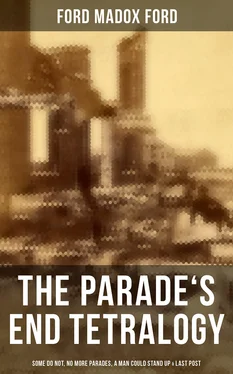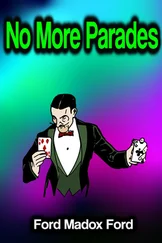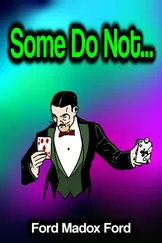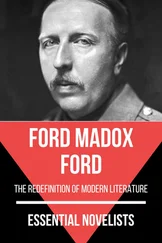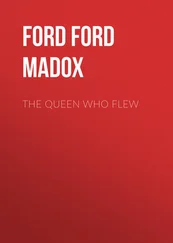She got up energetically:
‘I must go and write my novel,’ she said. ‘I’ve Monday’s instalment to send off by train to-night. You’ll go into my study: Valentine will give you paper; ink; twelve different kinds of nibs. You’ll find Professor Wannop’s books all round the room. You’ll have to put up with Valentine typing in the alcove. I’ve got two serials running, one typed, the other in manuscript.’
Tietjens said:
‘But you !’
‘I,’ she exclaimed, ‘I shall write in my bedroom on my knee. I’m a woman and can. You’re a man and have to have a padded chair and sanctuary . . . You feel fit to work? Then: you’ve got till five, Valentine will get tea then. At half-past five you’ll set off to Rye. You’ll be back with your luggage and your friend and your friend’s luggage at seven.’
She silenced him imperiously with:
‘Don’t be foolish. Your friend will certainly prefer this house and Valentine’s cooking to the pub and the pub’s cooking. And he’ll save on it . . . It’s no extra trouble. I suppose your friend won’t inform against that wretched little suffragette girl upstairs.’ She paused and said: ‘You’re sure you can do your work in the time and drive Valentine and her to that place . . . Why it’s necessary is that the girl daren’t travel by train and we’ve relations there who’ve never been connected with the suffragettes. The girl can live hidden there for a bit . . . But sooner than you shouldn’t finish your work I’d drive them myself . . . ’
She silenced Tietjens again: this time sharply:
‘I tell you it’s no extra trouble. Valentine and I always make our own beds. We don’t like servants among our intimate things. We can get three times as much help in the neighbourhood as we want. We’re liked here. The extra work you give will be met by extra help. We could have servants if we wanted. But Valentine and I like to be alone in the house together at night. We’re very fond of each other.’
She walked to the door and then drifted back to say:
‘You know, I can’t get out of my head that unfortunate woman and her husband. We must all do what we can for them.’ Then she started and exclaimed: ‘But, good heavens, I’m keeping you from your work . . . The study’s in there, through that door.’
She hurried through the other doorway and no doubt along a passage, calling out:
‘Valentine! Valentine! Go to Christopher in the study. At once . . . at . . . ’ Her voice died away.
Table of Contents
Jumping down from the high step of the dog-cart the girl completely disappeared into the silver: she had on an otter-skin toque, dark, that should have been visible. But she was gone more completely than if she had dropped into deep water, into snow—or through tissue paper. More suddenly, at least! In darkness or in deep water a moving paleness would have been visible for a second: snow or a paper hoop would have left an opening. Here there had been nothing.
The constatation interested him. He had been watching her intently and with concern for fear she should miss the hidden lower step, in which case she would certainly bark her shins. But she had jumped clear of the cart: with unreasonable pluckiness, in spite of his: ‘Look out how you get down.’ He wouldn’t have done it himself: he couldn’t have faced jumping down into that white solidity . . .
He would have asked: ‘Are you all right?’ but to express more concern than the ‘look out,’ which he had expended already, would have detracted from his stolidity. He was Yorkshire and stolid: she south country and soft: emotional: given to such ejaculations as ‘I hope you’re not hurt,’ when the Yorkshireman only grunts. But soft because she was south country. She was as good as a man—a south-country man. She was ready to acknowledge the superior woodenness of the north . . . That was their convention: so he did not call down: ‘I hope you’re all right,’ though he had desired to.
Her voice came, muffled, as if from the back of the top of his head: the ventriloquial effect was startling:
‘Make a noise from time to time. It’s ghostly down here and the lamp’s no good at all. It’s almost out.’
He returned to his constatations of the concealing effect of water vapour. He enjoyed the thought of the grotesque appearance he must present in that imbecile landscape. On his right an immense, improbably brilliant horn of a moon, sending a trail as if down the sea, straight to his neck: beside the moon a grotesquely huge star: in an extravagant position above them the Plough, the only constellation that he knew; for, though a mathematician, he despised astronomy. It was not theoretical enough for the pure mathematician and not sufficiently practical for daily life. He had of course calculated the movements of abstruse heavenly bodies: but only from given figures: he had never looked for the stars of his calculations . . . Above his head and all over the sky were other stars; large and weeping with light, or as the dawn increased, so paling that at times, you saw them; then missed them. Then the eye picked them up again.
Opposite the moon was a smirch or two of cloud; pink below, dark purple above; on the more pallid, lower blue of the limpid sky.
But the absurd thing was this mist! . . . It appeared to spread from his neck, absolutely level, absolutely silver, to infinity on each side of him. At great distances on his right black tree-shapes, in groups—there were four of them—were exactly like coral islands on a silver sea. He couldn’t escape the idiotic comparison: there wasn’t any other.
Yet it didn’t exactly spread from his neck: when he now held his hands, nipple-high, like pallid fish they held black reins which ran downwards into nothingness. If he jerked the rein, the horse threw its head up. Two pricked ears were visible in greyness: the horse being sixteen two and a bit over, the mist might be ten foot high. Thereabouts . . . He wished the girl would come back and jump out of the cart again. Being ready for it, he would watch her disappearance more scientifically. He couldn’t of course ask her to do it again: that was irritating. The phenomenon would have proved—or it might of course disprove—his idea of smoke screens. The Chinese of the Ming dynasty were said to have approached and overwhelmed their enemies under clouds of—of course, not acrid—vapour. He had read that the Patagonians, hidden by smoke, were accustomed to approach so near to birds or beasts as to be able to take them by hand. The Greeks under Paleologus the . . .
Miss Wannop’s voice said—from beneath the bottom board of the cart:
‘I wish you’d make some noise. It’s lonely down here, besides being possibly dangerous. There might be clicks on each side of the road.’
If they were on the marsh there certainly would be dykes—why did they call ditches ‘dykes,’ and why did she pronounce it ‘dicks’?—on each side of the road. He could think of nothing to say that wouldn’t express concern, and he couldn’t do that by the rules of the game. He tried to whistle ‘John Peel’! But he was no hand at whistling. He sang:
‘D’ye ken, John Peel at the break of day . . . ’ and felt like a fool. But he kept on at it, the only tune that he knew. It was the Yorkshire Light Infantry quick-step: the regiment of his brothers in India. He wished he had been in the army; but his father hadn’t approved of having more than two younger sons in the army. He wondered if he would ever run with John Peel’s hounds again: he had once or twice. Or with any of the trencher-fed foot packs of the Cleveland district, of which there had been still several when he had been a boy. He had been used to think of himself as being like John Peel with his coat so grey . . . Up through the heather, over Wharton’s place; the pack running wild; the heather dripping; the mist rolling up . . . another kind of mist than this south-country silver sheet. Silly stuff! Magical! That was the word. A silly word . . . South country . . . In the north the old grey mists rolled together, revealing black hillsides.
Читать дальше
